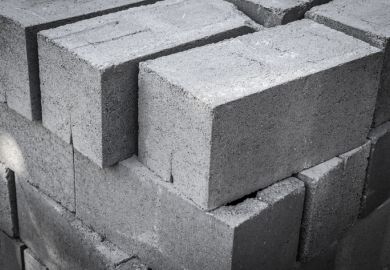While universities and colleges have largely risen to the challenge of moving lectures and seminars online in the pandemic, all of them remain puzzled about how to maintain academic integrity effectively, efficiently and non-invasively when traditional assessment strategies are inaccessible.
Locking an entire cohort in a lecture hall, taking their phones away and conducting perimeter checks during the bathroom breaks is no longer an option when students are learning from home. But the online proctoring of examinations has brought new challenges; students may be unfairly penalised for not following invasive and inconvenient surveillance protocols that seem drawn straight from a dystopian novel.
The pressing question is whether the bar for academic integrity should be lowered in these exceptional circumstances. Scholars seem divided on this issue. After all, while lowering the bar might reduce the stress felt by students studying in difficult circumstances, taking this approach risks issuing course credits to students who did not meet the learning objectives, thereby devaluing academic achievement.
Our recent research, “When academic integrity rules should not apply”, published in Assessment & Evaluation in Higher Education, finds that nearly half of academic staff (34 out of 79 in our sample) are inclined to waive academic integrity rules in certain circumstances, such as personal problems, procedural unfairness, first-time offences and where cultural differences affect understanding of integrity. In the current circumstances, well-being, personal situation and technical issues are particularly salient. For example, isolation may affect mental health. Students may be laid off from part-time jobs and face financial hardship. And learning management systems may experience technical issues. These are all circumstances that should merit consideration because they are outside students’ control.
Some academics have argued – while providing only anecdotal evidence – that academic misconduct has been running rampant during the pandemic as instructors struggle to secure their learning environments. It is certainly possible that some students may attempt to exploit the situation and cut a corner or two to receive a course credit with minimal effort. But there will be many students who genuinely experience distress and require accommodation and support. Will you be able to accurately distinguish these two groups?
Academic integrity is often portrayed as a student issue, overlooking the role played by faculty and support staff in the academic process. By focusing on students alone, the complexity of the integrity problem is vastly simplified and so are the corresponding solutions that generally focus on raising awareness and punishing cheating.
This approach presupposes that all academic staff are on the same page and follow policies to the letter. However, there is a good reason to doubt that this is true – and if there were even one faculty member who played by their own rules, their actions would undermine the entire process. Our study challenges the traditional narrative and argues that the integrity problem should not be framed as “faculty v student”. Considering that every single stakeholder in the process is a potential weak link, the problem should be framed as “everyone v everyone”.
Some academic staff may argue that showing leniency towards integrity breaches is akin to incentivising cheating. In other words, it creates an unfair advantage for some students while penalising others who play by the rules. Current institutional policies and practices on academic integrity, however, were never designed to anticipate the novel situation that higher education now encounters.
Although academic misconduct should not be tolerated, taking a one-size-fits-all approach to secure assessment is unfair and may cause untold harm. Remote assessments are here at least for a while as university systems across the northern hemisphere confront the prospect of further lockdowns as Covid-19 cases spiral.
As a result, some staff may be tempted to exercise discretion in an attempt to mitigate procedural unfairness, but in contravention of institutional policy. This is a case of having their cake and eating it. Academic practitioners cannot promote integrity as a core principle and at the same time run it on their own terms.
But nor can institutions promote support and inclusion but fail to account for exceptional circumstances. They should take heed of lessons learned during the pandemic and re-conceive assessment security and integrity during exceptional circumstances. And, crucially, they should leave formal space in their new frameworks for faculty to exercise their own moral judgement and personal integrity when making the final call.
Alexander Amigud is a researcher at the Center for the Study of Social Processes, in Toronto, and David J. Pell is an honorary associate at the Open University.
Register to continue
Why register?
- Registration is free and only takes a moment
- Once registered, you can read 3 articles a month
- Sign up for our newsletter
Subscribe
Or subscribe for unlimited access to:
- Unlimited access to news, views, insights & reviews
- Digital editions
- Digital access to THE’s university and college rankings analysis
Already registered or a current subscriber? Login








